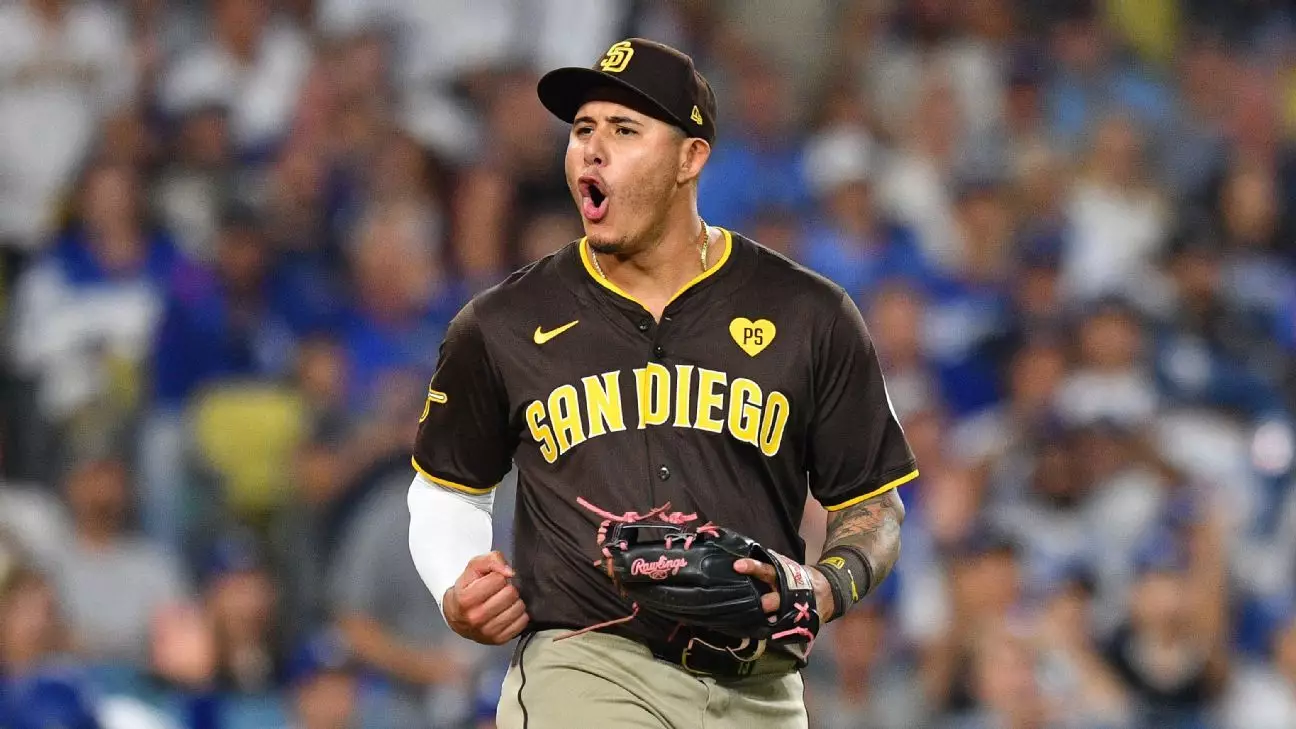As the National League Division Series unfolds, the tension between the San Diego Padres and the Los Angeles Dodgers has reached a fever pitch. Following a significant 10-2 victory for the Padres, their manager, Mike Shildt, was faced with remarks from Dodgers’ manager Dave Roberts, who had criticized third baseman Manny Machado’s throw that veered toward the Dodgers’ dugout. This incident has sparked discussions not only about player conduct but also about leadership and the thick atmosphere enveloping these two rival franchises.
Shildt’s steadfast defense of Machado emphasizes the necessity of respecting players across the league, irrespective of their affiliation. By refusing to engage negatively with Roberts’ critique, Shildt underscores a vital principle in sportsmanship—fostering a culture where mutual respect prevails. His inclination to safeguard Machado’s integrity speaks volumes about the kind of leadership he embodies. This moment serves as a critical reminder that while competition heightens emotions, the way managers and players conduct themselves can foster a supportive environment or add unnecessary tension.
Machado’s response to the tumultuous seventh inning exemplifies the qualities of a leader. His quick initiative to assemble the team amid flying objects from the stands is a commendable act that demonstrates his growth as both a player and a leader. Shildt’s mention of Machado being a Roberto Clemente Award winner reinforces this sentiment—highlighting not just the player’s prowess on the field but also his contributions to the community off the field. Machado’s actions signify that true leadership transcends mere performance; it involves inspiring teammates and handling volatile situations with poise.
As the series progresses, emotions are not merely a backdrop; they are a pivotal element in shaping the gameplay. Max Muncy, third baseman for the Dodgers, correctly points out that the atmosphere at Petco Park could benefit the Padres, who thrive on an energized crowd. Recognizing how crowd dynamics can influence player performance is essential in high-stakes games. For the Dodgers to succeed, maintaining focus amidst the frenzy becomes paramount, especially with the electric environment that is a hallmark of playoff baseball.
Amid the escalating drama, it is crucial to examine the implications of Machado’s errant throw. While MLB has chosen not to impose any discipline, the highlight here should be on the mentality surrounding players’ actions during high-pressure moments. Shildt’s commentary reinforces the idea that while passion is a part of baseball, it must come with a sense of accountability. The play itself—Machado’s exceptional arm strength—should be the focal point rather than any purported malice.
This chapter of the Padres vs. Dodgers rivalry serves as an insightful reflection on leadership, respect, and emotional intelligence within the sport. As the teams continue to clash, it’s evident that the stakes are not only measured by runs scored or games won but also by the essence of sportsmanship and the impact of vital decisions made under pressure. Both teams are not just playing for victory; they are exemplifying values that resonate throughout the wider context of sports.


Leave a Reply